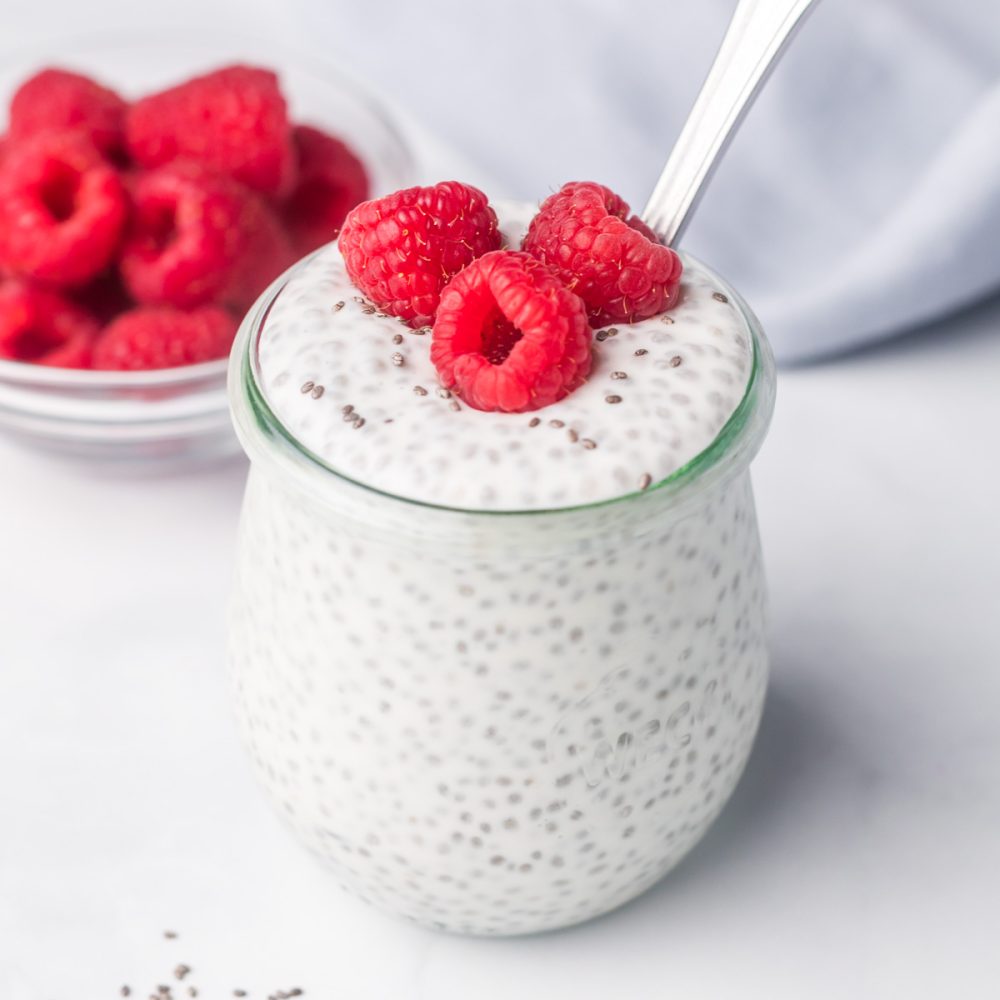The Health Benefits of Yogurt: A Comprehensive Overview
Contents
- 1 The Health Benefits of Yogurt: A Comprehensive Overview
- 2 Nutritional Value of Yogurt
- 3 Probiotics and Gut Health
- 4 Yogurts and Weight Management
- 5 Yogurt’s Role in Immune Function
- 6 Potential Drawbacks of Yogurt
- 7 Yogurts in Various Diets
- 8 Creative Ways to Include Yogurts in Your Meals
- 9 Conclusion: The Versatility and Health Benefits of Yogurts
Yogurt is a popular dairy product enjoyed worldwide. It boasts various health benefits. This blog explores the nutritional advantages, potential drawbacks, and ways to incorporate yogurt into a daily diet.
Rich in probiotics, vitamins, and essential nutrients, yogurt has long been recognized for its positive effects on gut health. These beneficial bacteria not only aid digestion but may also bolster the immune system, helping your body fend off illnesses. Additionally, yogurt is a fantastic source of protein and calcium, making it an ideal snack or breakfast option for anyone looking to maintain muscle mass and support bone health. With various types available—from creamy Greek yogurt to dairy-free alternatives made from almonds or coconuts—there’s a version for almost everyone, accommodating lactose intolerance and vegan diets alike.
However, it’s essential to navigate the yogurt aisle wisely. Many commercial products are loaded with added sugars and artificial ingredients that can negate their health benefits. In this blog, we’ll delve deeper into the nutritional profile of yogurt, explore different varieties, and highlight how to maximize its health perks while avoiding potential pitfalls. Whether you’re a yogurt enthusiast or a curious newcomer, our insights will help you make informed choices that elevate your wellness journey while savoring this delicious food staple. So grab a spoon and let’s dive into the creamy world of yogurt and discover if it deserves a regular spot in your diet!

Nutritional Value of Yogurt
Yogurts is rich in essential nutrients. It contains protein, calcium, vitamins, and probiotics. Each serving provides a significant portion of daily nutritional needs. Nutrition varies among different types of yogurt. For instance, Greek yogurt has more protein than traditional yogurt. This high protein content aids muscle repair and growth. Additionally, yogurt is a good source of calcium, which supports bone health. Strong bones are crucial for overall body function and longevity.
Yogurts also contains essential vitamins such as B12 and riboflavin. These vitamins play critical roles in energy production and maintaining a healthy nervous system. Furthermore, the probiotics found in yogurt contribute to gut health. They promote a healthy balance of gut bacteria. This balance is vital for digestion, immune function, and overall well-being.
Incorporating yogurt into the diet is simple. It can be consumed on its own or added to smoothies. Many individuals enjoy yogurt with fruits, nuts, or granola. These additions further enhance the nutritional profile. They provide extra vitamins, fiber, and healthy fats.
When choosing yogurts, opting for plain versions is advisable. Flavored yogurts often contain added sugars. Excessive sugar intake can lead to various health issues. By selecting plain yogurt, individuals can control their sugar consumption. Sweeteners, such as honey or maple syrup, can be added for flavor.
Probiotics and Gut Health
Probiotics are beneficial bacteria that promote a healthy digestive system. Yogurt is one of the best sources of probiotics. Regular consumption can enhance gut flora balance, which is critical for digestive health. A well-balanced gut can affect everything from digestion to the immune system.
Research indicates that probiotics may help alleviate symptoms of irritable bowel syndrome (IBS). They can reduce bloating and discomfort associated with this condition. Additionally, probiotics can combat harmful bacteria in the gut. This activity helps prevent infections and supports overall gut health.
The benefits of probiotics extend beyond the digestive system. Studies suggest they can enhance mental health. There is a connection between gut health and mental well-being, often referred to as the gut-brain axis. Probiotics may help improve mood and reduce anxiety symptoms. Therefore, yogurt serves as a delicious way to support both physical and mental health.
Incorporating yogurts into meals can be beneficial. It is easy to add yogurts to smoothies, salad dressings, or marinades. This versatility allows individuals to enjoy its health benefits in various ways. Furthermore, plain yogurt can serve as a base for dips, providing an alternative to higher-calorie options.

Yogurts and Weight Management
Yogurts can be an effective tool for weight management. Its high protein content promotes satiety. Consuming protein-rich foods can reduce overall calorie intake. Reduced calorie intake is vital for weight loss. Studies show that individuals who include yogurt in their diets are more likely to maintain a healthy weight.
The calcium in yogurts may also play a role in weight management. Research indicates that calcium can help regulate fat metabolism. Maintaining a healthy metabolism is essential for weight maintenance. Therefore, incorporating yogurt into the diet can support weight goals.
Additionally, yogurts is low in calories compared to many snacks. It can serve as a guilt-free option for those seeking a healthy treat. This low-calorie nature makes yogurt a suitable choice for weight watchers. Furthermore, the versatility of yogurt allows for various satisfying combinations. Add fruits, nuts, or seeds to create a filling snack or breakfast option.
Individuals looking to lose weight can benefit from including yogurt in their meals. It can replace higher-calorie ingredients in recipes. For example, yogurt can substitute sour cream or mayonnaise in dips and sauces. These substitutions provide flavor while reducing calorie content.

Yogurt’s Role in Immune Function
Yogurts contributes to a healthy immune system. Probiotics found in yogurts can enhance immune response. A balanced gut flora supports the body’s ability to fend off infections. Additionally, the vitamins and minerals present in yogurt promote overall health.
Regular consumption of yogurts may reduce the incidence of respiratory infections. Research indicates that probiotics can help lower the risk of illnesses. A strong immune system is crucial for preventing various diseases and infections.
Yogurt’s benefits extend to heart health. Some studies suggest probiotics can help lower blood pressure. Maintaining healthy blood pressure levels is essential for overall cardiovascular health. Yogurt can also help manage cholesterol levels. By improving cholesterol profiles, yogurt supports heart health.
Incorporating yogurts into the diet can provide multiple immune system benefits. Enjoy it as part of a balanced meal. Pair yogurt with other nutrient-dense foods for a healthful diet. This combination maximizes the benefits of yogurt while supporting overall health.
Potential Drawbacks of Yogurt
While yogurts offers numerous health benefits, potential drawbacks exist. Some individuals may be lactose intolerant. In these cases, consuming dairy products can lead to digestive discomfort. Symptoms may include bloating, gas, or diarrhea. Fortunately, lactose-free yogurt options are available.
Additionally, some flavored yogurts contain high sugar levels. Excessive sugar intake can lead to weight gain and metabolic issues. Many lower sugar options are available on the market. Therefore, careful label reading is essential when selecting yogurt.
Another concern is the presence of additives in some yogurt brands. Certain yogurts contain artificial flavors and preservatives. These additives do not provide nutritional benefits. Opting for organic or natural yogurt can reduce the intake of these unwanted ingredients.
People must also consider portion sizes. Yogurt is nutritious but can contribute to excess calorie intake if consumed in large quantities. Moderation is vital to enjoy the benefits without facing potential drawbacks. Balancing yogurt intake with other food groups creates a well-rounded diet.
Yogurts in Various Diets
Yogurt is versatile and can fit into various dietary plans. It appeals to vegetarians and omnivores alike. Plant-based or non-dairy yogurts are also popular. These options cater to those with dairy allergies or ethical concerns. Made from almond, coconut, or soy, they mimic traditional yogurt’s taste and texture.
Many health-conscious individuals incorporate yogurts into their daily meals. It serves as a base for smoothies, adding creaminess and nutrition. Yogurts can be combined with protein powders for an extra boost.
In the realm of weight loss diets, yogurt shines. It can serve as a snack or breakfast option. The protein content helps keep individuals full and satisfied. Additionally, yogurt parfaits with berries and granola make for a nutritious breakfast or dessert.
Yogurts can also complement Mediterranean and other dietary patterns. The Mediterranean diet emphasizes whole foods, fruits, vegetables, and healthy fats. Yogurt aligns with these principles, providing beneficial nutrients and flavors.

Creative Ways to Include Yogurts in Your Meals
Incorporating yogurts into daily meals is easy and enjoyable. Many creative ideas exist to enhance flavor and nutrition. Yogurts can serve as a healthy base for salad dressings. By mixing yogurts with herbs and spices, individuals can make creamy dressings lower in calories.
Yogurt also makes a delicious topping for baked goods. A dollop of yogurts can elevate muffins or pancakes. This addition enhances flavors while offering nutritional benefits.
Smoothies are another popular option for incorporating yogurts. Blending yogurts with fruits, vegetables, or nuts creates a refreshing drink. This drink provides protein, vitamins, and fiber—all essential for a healthy diet.
For a quick snack, combine yogurts with granola or nuts. This combination offers a satisfying crunch and added nutrition. Yogurts can even be used in cooking or baking. It adds moisture to cakes and muffins, creating tenderness.
Conclusion: The Versatility and Health Benefits of Yogurts
Yogurt is not only tasty but also brimming with health benefits. Its nutritional profile supports overall well-being. The presence of probiotics promotes gut health, enhancing digestion. Regular consumption can aid in weight management. Yogurt’s versatility allows it to fit various diets and meal plans.
Individuals must choose wisely when selecting yogurts. Opting for plain, low-sugar options maximizes health benefits. Experimenting with different flavors and ingredients can keep things interesting. Yogurts can play a pivotal role in maintaining healthy habits and dietary choices.
With so many ways to enjoy yogurts, it becomes a staple in any diet. Therefore, making yogurts part of daily meals contributes to a healthier lifestyle. So, consider adding yogurts to the grocery list today! Enjoy its health benefits while savoring its delicious taste.
